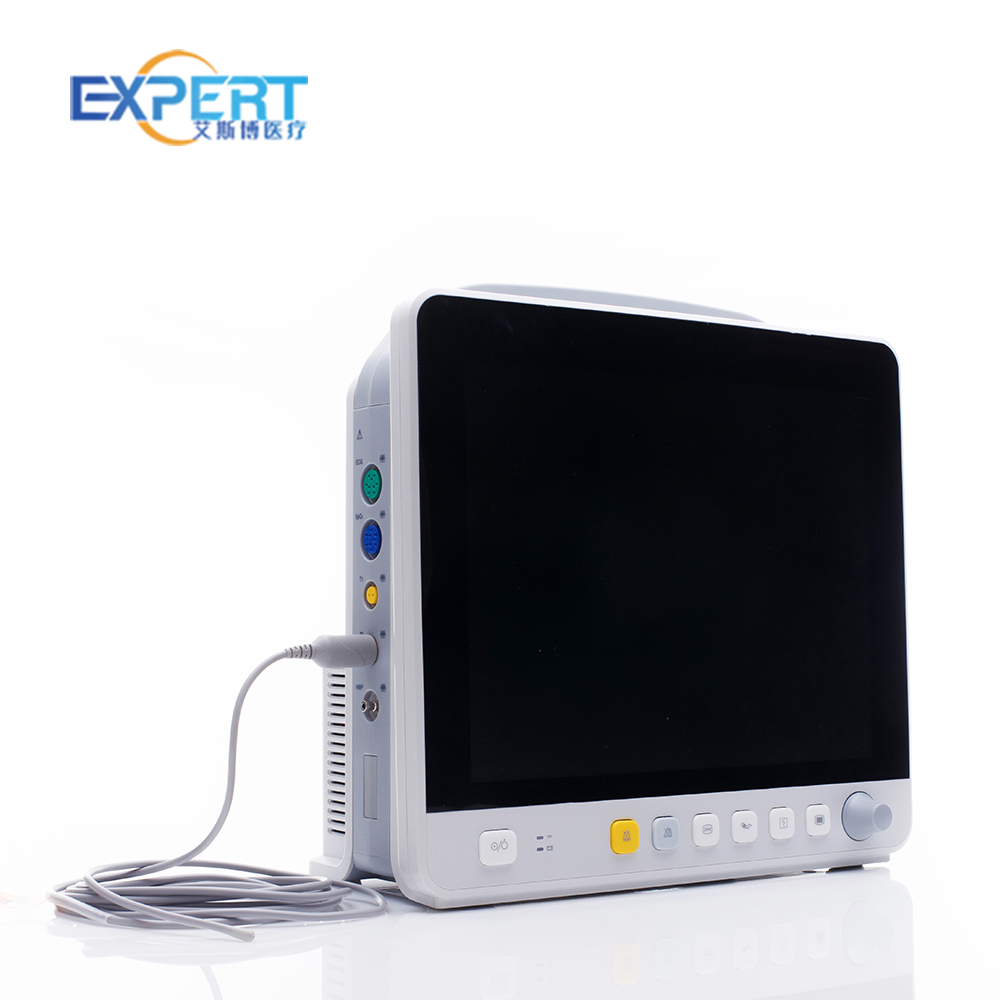Adresse
304, rue Cardinal Nord
Centre Dorchester, MA 02124
Heures de travail
Du lundi au vendredi : 7h - 19h
Week-end : 10h - 17h
ECG machines, also known as electrocardiogram machines, play an essential role in the field of cardiac care. These devices are used to record the electrical activity of the heart, providing valuable information that aids in the diagnosis, monitoring, and treatment of various heart conditions. In this comprehensive guide, we will explore why ECG machines are crucial for cardiac care, delve into their functions and benefits, and highlight their importance in modern healthcare.

ECG machines are medical devices used to measure the electrical activity of the heart. By placing electrodes on the patient’s skin, these machines can detect and record the electrical signals that control the heart’s rhythm and function. The resulting ECG (electrocardiogram) provides a graphical representation of the heart’s activity, which can be analyzed by healthcare professionals to detect abnormalities.
ECG machines function by detecting the tiny electrical changes on the skin that result from the heart muscle’s depolarization during each heartbeat. The electrodes, typically placed on the chest, arms, and legs, pick up these signals and transmit them to the ECG machine. The machine then processes these signals and displays them as waveforms on a screen or prints them on paper.
| Composant | Fonction |
|---|---|
| Electrodes | Detect electrical activity from the heart |
| Lead Wires | Transmit signals from the electrodes to the machine |
| Amplifier | Boosts the strength of the electrical signals |
| Display/Printer | Shows or prints the recorded ECG waveforms |
| Software | Analyzes and interprets the ECG data |
ECG machines are invaluable for identifying arrhythmias, which are irregular heartbeats. Arrhythmias can range from benign to life-threatening conditions, and early detection is crucial for effective treatment.
ECG machines can detect signs of myocardial infarction (heart attack) by identifying specific changes in the ECG waveforms. Early detection allows for prompt intervention, which can significantly improve patient outcomes.
For patients with chronic heart conditions, regular monitoring with ECG machines is essential. These machines help track the progression of diseases such as heart failure and cardiomyopathy, allowing for timely adjustments in treatment.
ECG machines are also used to monitor patients after cardiac surgery. Continuous monitoring helps detect any complications early, ensuring that patients receive prompt care.
ECG machines provide a comprehensive assessment of the heart’s electrical activity, enabling healthcare professionals to make accurate diagnoses. The detailed information from an ECG can reveal underlying issues that might not be evident through physical examination alone.
ECG machines often work in conjunction with other diagnostic tools, such as echocardiograms and stress tests. This integrated approach enhances diagnostic accuracy and provides a complete picture of the patient’s heart health.
The early detection and accurate diagnosis provided by ECG machines enable timely intervention, which is critical for improving patient outcomes. Whether it’s administering medication, performing a procedure, or making lifestyle recommendations, prompt action can make a significant difference.
ECG machines allow healthcare providers to develop personalized treatment plans based on the patient’s specific heart condition. Tailored treatments are more effective and can lead to better long-term health outcomes.
Resting ECG machines are the most common type of ECG machines used in clinical settings. They record the heart’s activity while the patient is at rest and are used for routine check-ups and diagnosing various heart conditions.
Portable resting ECG machines offer the convenience of conducting ECG tests outside of traditional clinical settings, such as in a patient’s home or in remote areas.
Stress ECG machines, also known as exercise ECG machines, monitor the heart’s activity while the patient is performing physical activity. This type of ECG is useful for identifying heart conditions that may not be evident when the heart is at rest.
Stress ECG machines are also used in cardiac rehabilitation programs to monitor patients’ progress and ensure that exercise regimens are safe and effective.
Holter monitors are portable ECG devices that record the heart’s activity continuously over 24 to 48 hours. This type of monitoring is useful for detecting intermittent arrhythmias that may not be captured during a standard ECG test.
Holter monitors are compact and wearable, allowing patients to go about their daily activities while their heart activity is being recorded.

Digital ECG machines provide enhanced data accuracy and storage capabilities. The digital format allows for precise measurements and easy retrieval of patient records.
Digital ECG machines can be integrated with electronic health records (EHR) systems, facilitating seamless access to patient data for healthcare providers.
Wireless ECG machines enable remote monitoring of patients’ heart activity, making it possible for healthcare providers to track their patients’ heart health in real-time, regardless of location.
Wireless technology increases mobility for patients, allowing them to move freely without being tethered to a stationary device.
Artificial intelligence (AI) algorithms are being integrated into ECG machines to provide automated interpretation of ECG results. This technology can help identify patterns and anomalies quickly, aiding in faster diagnosis.
AI-powered ECG machines can also utilize predictive analytics to assess the risk of future cardiac events, helping healthcare providers take preventive measures.
ECG machines are indispensable tools in cardiac care, providing early detection, accurate diagnosis, and continuous monitoring of heart conditions. Their versatility and technological advancements have made them crucial in improving patient outcomes and enhancing the quality of healthcare. From resting ECGs to advanced wireless and AI-integrated models, ECG machines continue to evolve, offering greater precision and convenience for both healthcare providers and patients.
An ECG machine is used to record the electrical activity of the heart. It helps in diagnosing and monitoring heart conditions such as arrhythmias, myocardial infarction, and other cardiac issues.
ECG machines detect heart conditions by measuring the electrical signals generated by the heart. These signals are captured through electrodes placed on the skin and displayed as waveforms, which are analyzed by healthcare professionals.
The main types of ECG machines include resting ECG machines, stress ECG machines, and Holter monitors. Each type serves different diagnostic and monitoring purposes.
Technological advancements have led to the development of digital, wireless, and AI-integrated ECG machines. These improvements enhance data accuracy, enable remote monitoring, and provide automated interpretation and predictive analytics.
ECG machines are crucial in cardiac care because they provide early detection of heart conditions, enable continuous monitoring, and support accurate diagnosis and personalized treatment plans. These capabilities improve patient outcomes and enhance the quality of care.
The frequency of ECG tests depends on the patient’s medical condition and risk factors. For routine check-ups, an annual ECG may be sufficient, while patients with known heart conditions may require more frequent monitoring.
While ECG machines are highly effective in detecting many heart conditions, they may not detect all issues. Some conditions may require additional diagnostic tests such as echocardiograms, stress tests, or advanced imaging.
During an ECG test, electrodes will be placed on the patient’s chest, arms, and legs. The patient will need to lie still while the machine records the heart’s electrical activity. The test is painless and usually takes only a few minutes.
ECG tests are non-invasive and generally safe. The primary risk is minor skin irritation from the electrodes, but this is typically rare and mild.
Patients should avoid heavy meals and caffeine before an ECG test. It’s also important to inform the healthcare provider of any medications being taken, as some drugs can affect the test results.
